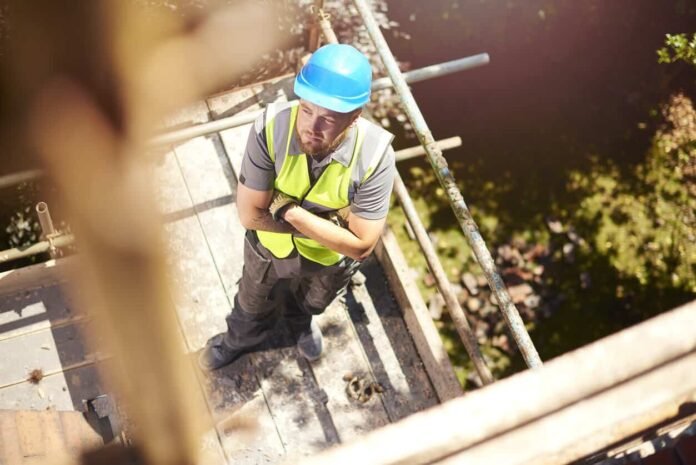As one of the most dangerous occupations in modern civilization, construction has unique insurance requirements.
Given that roofers work without two feet on the ground, roofing is a particularly dangerous profession. Working on a roof poses the greatest risk of injury due to worker or contractor fall.
Insurance for your roofing business is required since, among other things, bodily injury is common.
What form of business insurance should a typical roofing company consider?
BOP Example
A BOP is a must-have roofing policy. Less than 100 employees and less than $5 million in annual revenue might save money by bundling general liability, commercial property, and business interruption insurance into a BOP.
If a non-employee is hurt on the job, a general liability policy protects roofers. So if one of your tools fell from the roof and harmed a passerby, general liability insurance would assist cover the costs.
Slander, libel, wrongful arrest, and other reputational rights of your business and yourself are covered under general liability. It also covers client complaints about your business’s services or products.
Damage to property and equipment is covered by commercial insurance. This insurance protects your property and its contents whether you own or rent office buildings, storage facilities, or garages for your business. For their business-related tools and equipment, roofing contractors may often acquire or rent “tool and equipment floaters” to protect them.
This coverage reimburses firms in the event they have to close due to unforeseen circumstances. It typically covers up to a year’s worth of lost income and costs.
Illustration of an injured worker from Workers’ Compensation
Workers’ compensation insurance should be considered vital coverage when creating a roofing insurance program because the safety of your employees is paramount.
Given that roofing is a risky job with a high mortality rate, a decent workers’ compensation policy may cost more than a policy for a less risky business.
Employees injured on the job will be covered by worker’s compensation insurance for all medical and rehabilitation expenses. While your employees are healing and unable to work, worker’s compensation will compensate for their salary.
Workers’ compensation will also award disability and death payments if an employee is killed on the job. It also protects you from worker’s compensation claims and pays for defense costs and potential settlements if your injured employee decides to sue you rather than accept the worker’s compensation payments you provide.
Commercial Auto Coverage
Roofing business truck and automobile illustration
Commercial auto insurance is required if you use automobiles, trucks, vans, or trailers in your roofing company. Car insurance for personal usage does not cover work-related damages.
You and your employees are covered by commercial auto insurance if they are harmed while driving a company vehicle. Your workers’ compensation will also cover third-party physical injuries if you or your staff are involved in an accident.
A collision policy covers any damages to your car in the case of a collision with another vehicle. It should also cover any remaining balance on a leased vehicle in the event of major damage.
It depends on where your business is located and how much work you do in one place. This type of insurance is recommended for contractors who work in remote areas and need to ship large amounts of equipment and supplies back and forth.
This coverage is necessary for any company that regularly ships high-value items like computers, servers, laptops, networking equipment, or heavy construction equipment. Some inland marine insurance policies cover property that is temporarily leased or rented to you.
Illustration of a shield and a handshake
Some roofing and building companies require this form of insurance. To maintain or repair roofs, for example, your roofing company may need professional liability insurance if you often consult with customers and make suggestions on specific products, materials, and treatments.
Your advice or recommendations to a third party may have resulted in a financial loss or damage to the third party.
Building Surety Bonds image
In addition to providing job guarantees, surety bonds should be included in any excellent roofing insurance policy.
Anyone looking for a roofing contractor should look for someone who is licenced, bonded, and insured. Surety bonds are essentially legal contracts between two parties that protect one party from financial damage if the other party fails to complete the obligation.
Obtaining a bond for a roofer might be a hassle A business plan describing the work to be done must be supplied as well. Assuring the project is sufficiently funded and the roofing company has a good reputation among contractors and subcontractors is also required.
A specialised construction and roofing broker who knows the risks and the resulting coverage needs is always the best choice for acquiring bid, performance, or payment bonds.
BIA – Builders
Builders risk insurance protects a property that is being renovation. The policy will cover damage caused by vandalism, fire, or weather to buildings or other structures under construction or renovation. Equipment and materials used on the job site as well as in transit will be covered.
A majority of owners will need the general contractor to obtain this coverage for the project and all subcontractors as well.
Reach out to one of our expert Roofers in CT to learn more about the insurance your roofing company needs to be protected.


















